人教高中英语必修3 Unit 2 Healthy eating Modal Verb II(共40张PPT)
文档属性
| 名称 | 人教高中英语必修3 Unit 2 Healthy eating Modal Verb II(共40张PPT) | 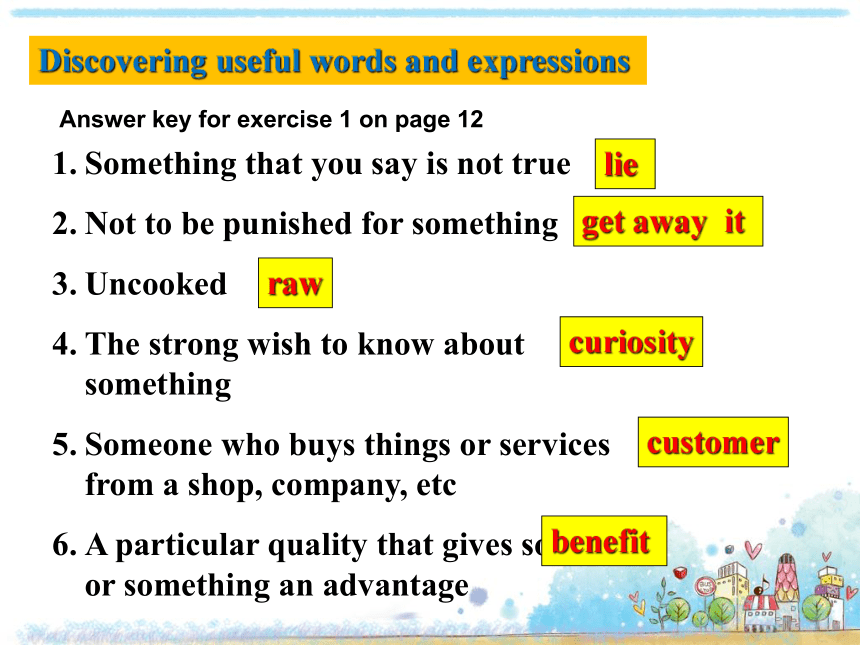 | |
| 格式 | zip | ||
| 文件大小 | 2.1MB | ||
| 资源类型 | 教案 | ||
| 版本资源 | 人教版(新课程标准) | ||
| 科目 | 英语 | ||
| 更新时间 | 2020-03-04 09:24:17 | ||
图片预览

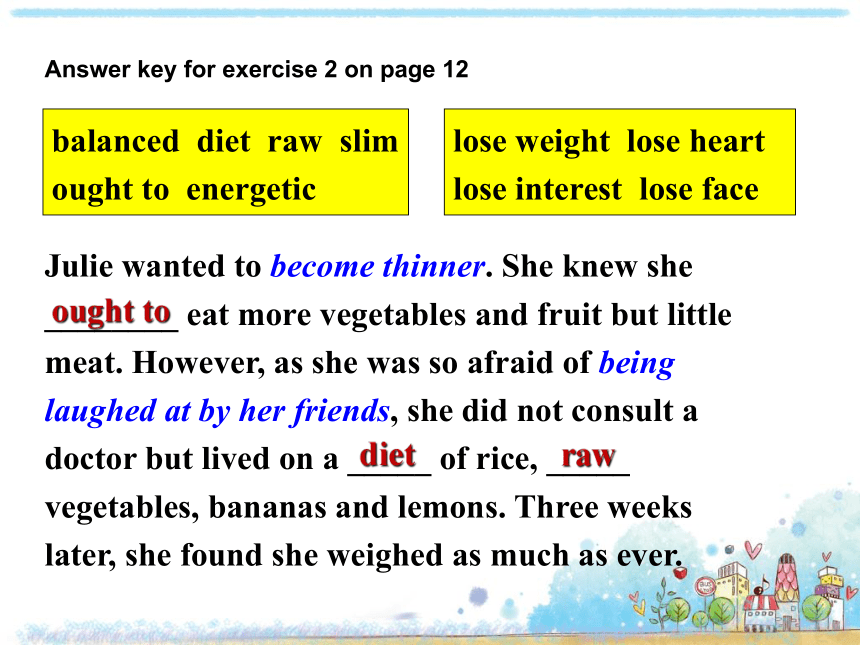
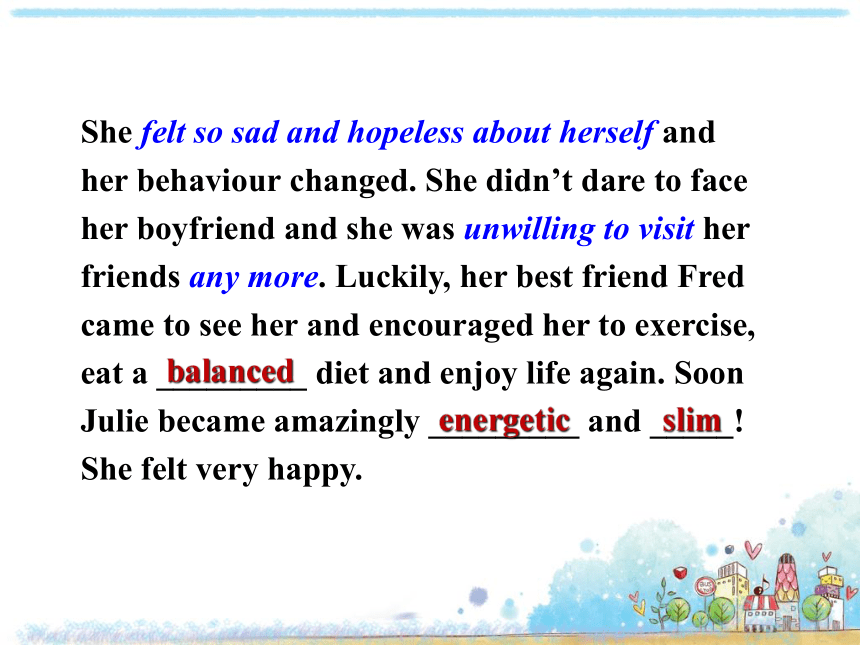
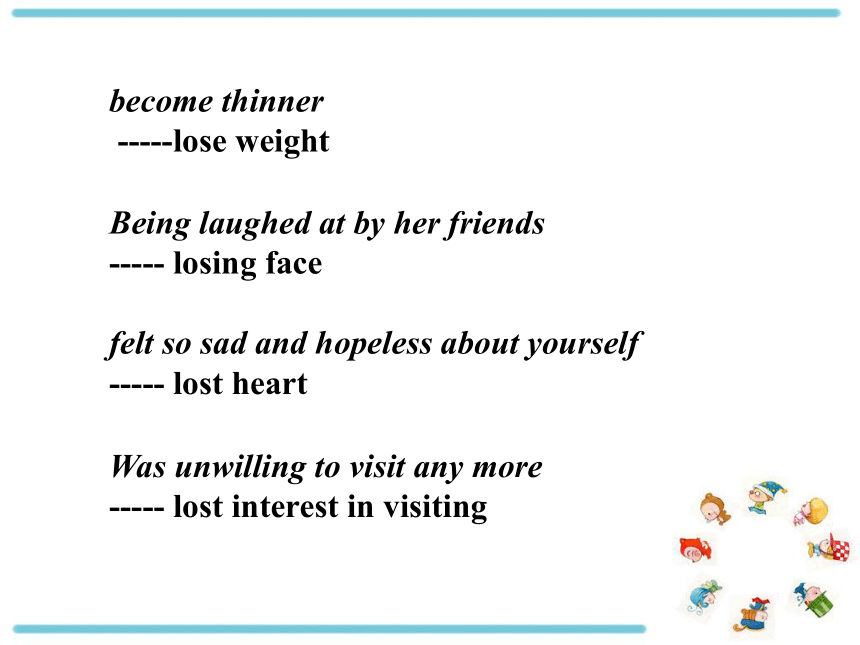
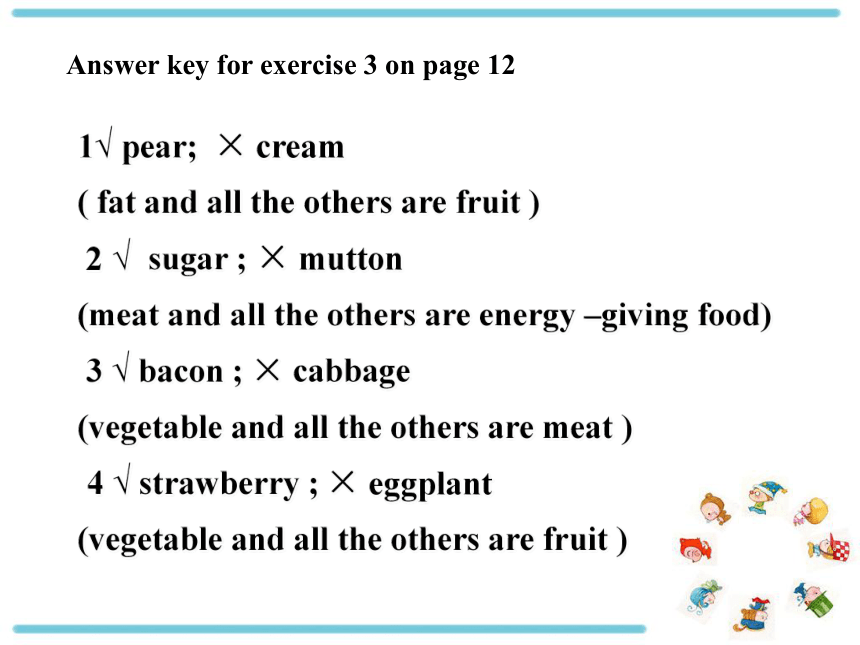
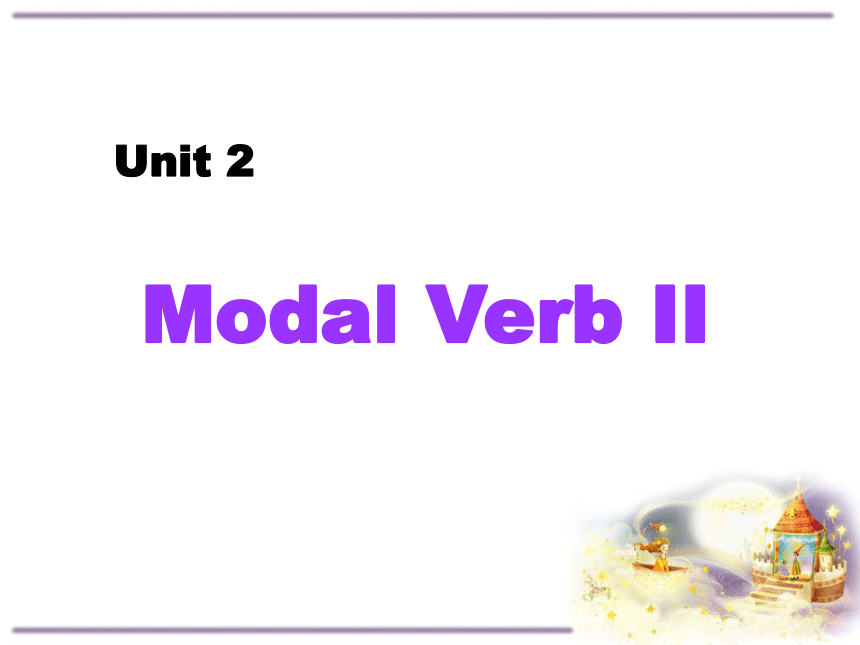
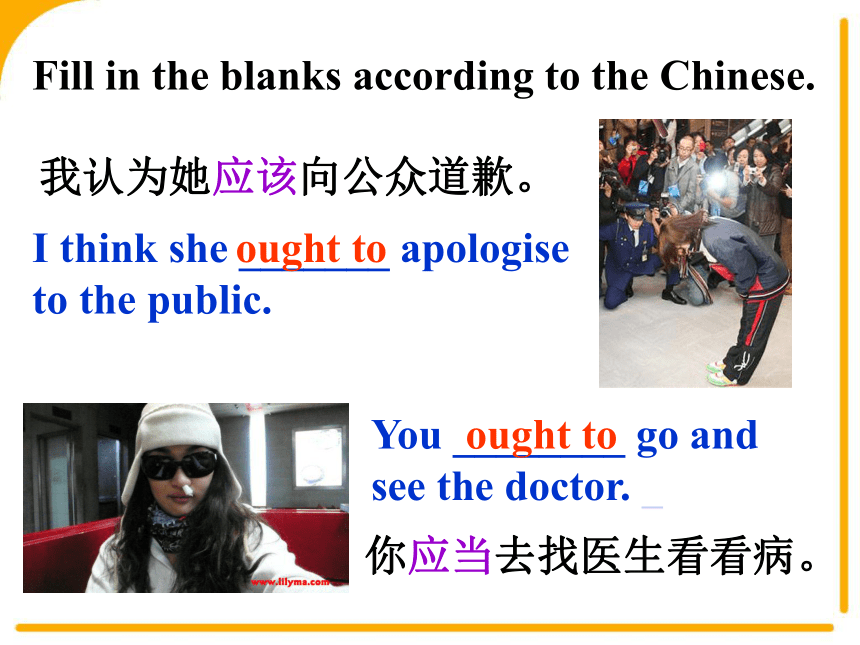

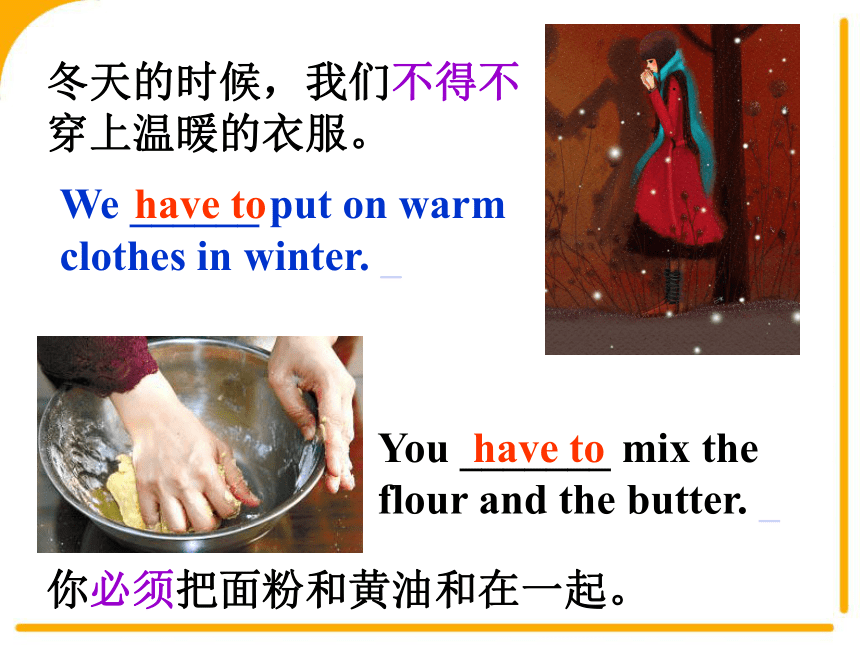
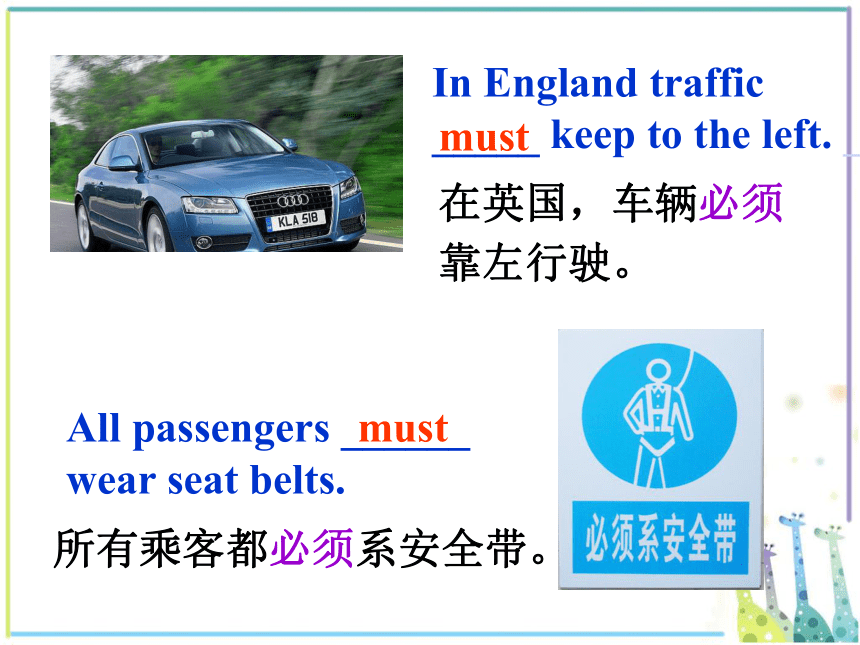
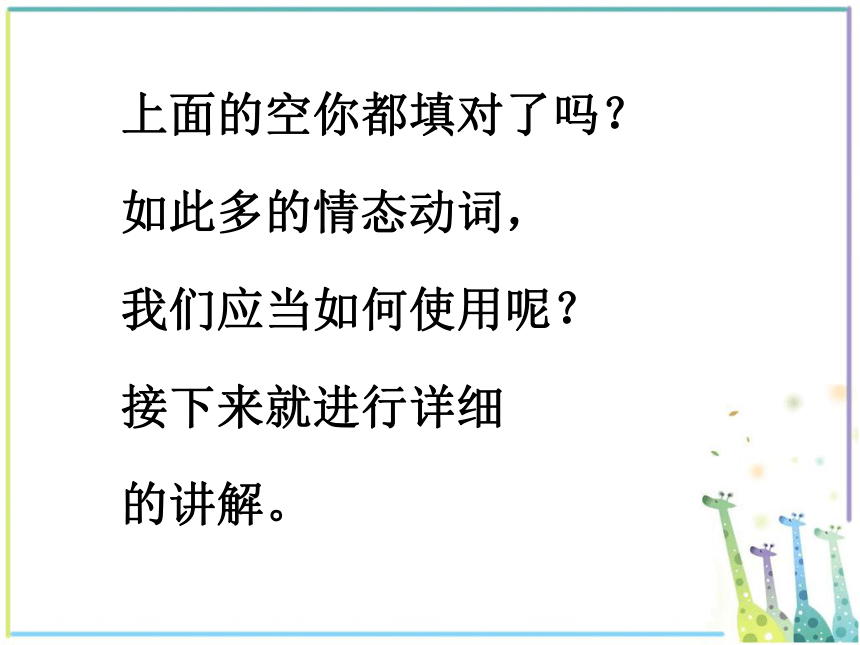
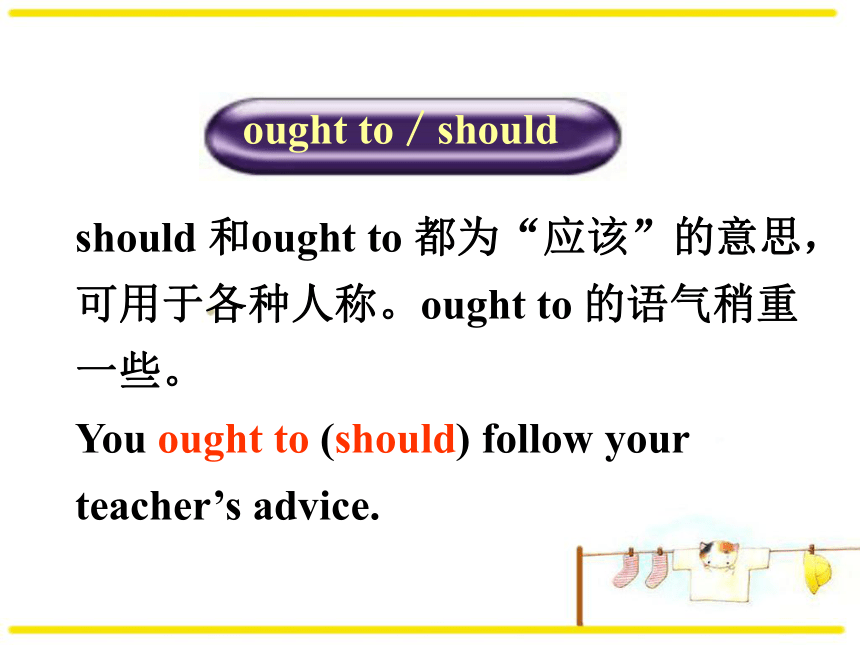
文档简介
(共40张PPT)
Something that you say is not true
Not to be punished for something
Uncooked
The strong wish to know about something
Someone who buys things or services from a shop, company, etc
A particular quality that gives someone or something an advantage
lie
get away it
raw
curiosity
customer
benefit
Answer key for exercise 1 on page 12
Discovering useful words and expressions
Julie wanted to become thinner. She knew she ________ eat more vegetables and fruit but little meat. However, as she was so afraid of being laughed at by her friends, she did not consult a doctor but lived on a _____ of rice, _____ vegetables, bananas and lemons. Three weeks later, she found she weighed as much as ever.
balanced diet raw slim ought to energetic
lose weight lose heart lose interest lose face
ought to
diet
raw
Answer key for exercise 2 on page 12
She felt so sad and hopeless about herself and her behaviour changed. She didn’t dare to face her boyfriend and she was unwilling to visit her friends any more. Luckily, her best friend Fred came to see her and encouraged her to exercise, eat a _________ diet and enjoy life again. Soon Julie became amazingly _________ and _____! She felt very happy.
balanced
energetic
slim
become thinner
-----lose weight
Being laughed at by her friends
----- losing face
felt so sad and hopeless about yourself
----- lost heart
Was unwilling to visit any more
----- lost interest in visiting
1√ pear; × cream
( fat and all the others are fruit )
2 √ sugar ; × mutton
(meat and all the others are energy –giving food)
3 √ bacon ; × cabbage
(vegetable and all the others are meat )
4 √ strawberry ; × eggplant
(vegetable and all the others are fruit )
Answer key for exercise 3 on page 12
Modal Verb II
Unit 2
I think she _______ apologise
to the public.
You ________ go and
see the doctor. ?
我认为她应该向公众道歉。
你应当去找医生看看病。
ought to
ought to
Fill in the blanks according to the Chinese.
Titanic ______ be a good movie.
We know if we keep at it
we _______ succeed. ?
泰坦尼克号应该是部好电影。
我们知道如果我们坚持下去就应该会成功。
should
should
We ______ put on warm
clothes in winter. ?
冬天的时候,我们不得不
穿上温暖的衣服。
你必须把面粉和黄油和在一起。
You _______ mix the
flour and the butter. ?
have to
have to
In England traffic
_____ keep to the left. ?
在英国,车辆必须
靠左行驶。
All passengers ______
wear seat belts.
所有乘客都必须系安全带。
must
must
上面的空你都填对了吗?
如此多的情态动词,
我们应当如何使用呢?
接下来就进行详细
的讲解。
should 和ought to 都为“应该”的意思,
可用于各种人称。ought to 的语气稍重
一些。
You ought to (should) follow your
teacher’s advice.
表示主语的义务或责任:
You should take care of your sister.
你应当去照顾你妹妹。
或指出一个正确、明智的动作:
They shouldn't allow parking here;the street is too narrow.
这儿不该允许停车;马路太窄了。
should 和ought to 后面跟动词不定式的完成式, 其肯定句表示”过去应该做而未做”, 其否定句则表示”过去不该做但做了”。
You should/ought to have made the decision a week ago.
I shouldn't have made such a foolish mistake.
注意
must的用法?
1. 表示主观的义务和必要,?主要用于肯定句和疑问句,?意思为?“必须……,得……,要……”;由must 引起的疑问句,肯定回答要用must或have?to,?否定回答要用needn’t或don’t?have?to,? 意思是“不必” ; must的否定形式mustn’t表示
禁止,意思是“不能, 不许”。如:?
—Must?I?finish?the?task?right?now?? 我现在必须完成这个工作吗?
—Yes, you?must.?/?Yes,?you?have?to.?
是的。?
(—No, you needn’t. / No, you don’t
have to. 不, 不必。)
have?to?的用法?
1. must表示一种主观的需要,而have?to
?表示一种客观的需要,意思是
“不得不”。?如:?
I have to attend an important meeting
this afternoon.
今天下午我不得不参加一个重要的会议。
Mother is out, so I have to look after
the shop.
妈妈不在家,因此我不得不照看商店。?
2. have?to?的否定形式是don’t have to,
相当于needn’t。如:
They don’t have to buy a computer at present. 他们目前没有必要买电脑。?
情态动词 (+动词原形)
行为动词
.
need
dare
1.无人称和数的变化;
2.尤其用于:
*否定句及疑问句中;
*在if/whether之后;
*或与hardly, never,
no one, nobody连用;
3.常以needn’t 和daren’t
的形式出现;
4.dare有其过去时dared.
多用于肯定句;
(sb.) need to do
dare to do
need to be done
need doing
注意对need问句的回答:
--Need I finish the work today?
--Yes, ________________.
No, ________________.
No, ________________.
you must
you needn’t
you don’t have to
needn’t 对其它情态动词的回答:
--Shall I tell John about it?
--No, you _____________________.
--Must we do it now?
--No, you _____________________.
needn’t (don’t have to)
needn’t (don’t have to)
dare可用实意动词和情态动词,用作情态动词时,意思是“敢”,其后接动词原形,通常只用于否定句或疑问句以及if或whether之后,一般不用于肯定句。如:
Dare you tell her the truth?
你敢告诉她事实真相吗?
I don’t know whether he dare try.
我不知他是否敢试一试。
I daren’t ask her for a rise.
我不敢要求她加薪。
dare用作实意动词时意为“敢于”,可以有各种词形变化,可用于各类句型(肯定句、否定句、疑问句及各类从句等),其后多接带 to 的不定式,有时 to 也可省去(尤其是在否定句或疑问句),可用于非谓语形式,完成时态等。如:
We must dare to think, speak and act.
我们必须敢想、敢说、敢做。
I wonder how he dares (to) say such things.
我纳闷他怎么竟敢说出这样的话来。
情态动词dare可以有过去式dared,但也可以直接用dare表示过去式,或后接动词完
成式。如:
That was why he dared do so.
那就是他为什么敢这样做的原因。
Mother dare(d) not tell father she‘d given away his old jacket.
母亲不敢告诉父亲她把他的旧上衣送人了。
dare的过去式问题
dare后通常不接动词的进行式。
Nobody need to be afraid of catching
the disease.
Nobody need be afraid of catching
the disease.
These dishes need be cleaned carefully.
These dishes need to be cleaned carefully.
These dishes need cleaning carefully.
判断正误:
How dare you say such a thing?
How dare you to say such a thing?
He daren’t to speak English before such
a crowd, did he?
He daren’t speak English before such a
crowd, dare he?
表示推测——情态动词的重要用法
+ V. 常见
must be
+ V./+ be
doing
+ have done
+ V.
must
may/might
+ V./+ be doing
+ have + done
可以用not表示“可能不”
情态动词 对将来 对现在 对过去
肯定的
推测
可能的
推测
can’t/
couldn’t
can/could
+ V./+ be
doing
+V.
+ have done
+ V.
+ V./+ be
doing
+ have done
情态动词 对将来 对现在 对过去
否定的
推测
疑问的
推测
在不表示推测的情态动词中, 我们要注意以下方面的问题:
1. 表示能力、许可的情态动词的用法。
2. 表示否定的情态动词的用法。
3. shall 和 will 的多种意义的区别。
4. 情态动词短语的使用。
5. 虚拟语气中情态动词的使用。
表示能力: can, could, be able to
be able to 能用于各种时态。
can / could 只能表示现在或过去的能力。
was / were able to 设法做成某事
相当于 managed to do sth.
succeeded in doing sth.
1. 表示能力、许可的情态动词的用法。
表示许可: may / might, can / could
might, could 比较委婉, 一般多用于疑
问句。
can, may 表达的语言比较随便。
在以could, might 表示征询对方意见
或表示请求时,回答应相应使用can,
may。
2. 表示否定的情态动词的用法:
mustn’t 不准; 禁止
needn’t 没必要 ( = don’t have to )
can’t 不能; 不可能
may not 不可以; 可能不
shouldn’t 不应该 ( = ought not to )
部分情态动词的否定式是情态动词中的考点之一。
不同的“肯定”程度可按下列层次排列:
He is at home. (事实)
He must be at home.(非常肯定的推断)
He could be at home.(很可能)
He ought to be at home.(很可能)
He may be at home.(仅仅可能而已)
He might be at home.(或许, 非常不确定)
He couldn’t be at home.(很可能不在家)
He can’t be at home.(一定不在家)
He isn't at home.(事实)
3. 情态动词shall, will 的多种意义:
shall / will+ 动词原形:
shall 可表示必须、命令、警告或征询意见。
will 可表示意愿、常出现的动作、在疑问句中表示请求和建议。
均可表示将来。 过去时为 should, would。
4. 情态动词短语的使用:
would like to do… would rather do…
would rather + 从句 would prefer to do...
had better do...
5. 用于虚拟语气的情态动词:
should might could would needn’t ought to
1. 我不得不接受你的建议。
2. 未经允许,你不能来这儿。
3. 你应当去照顾你妹妹。
4. 他们想必已到那儿了。
?You mustn’t come here without permission.
You should take care of your sister.
They ought to be there by now.
?I have to accept your suggestion.
Answer key for exercise 1 on page 13
Then usually by lunchtime they would all be sold. ( possibility )
What could have happened ? ( possibility )
Nothing could be better …” ( possibility )
something terrible must have happened if ….(Guessing )
He could not believe his eyes. (Abilitys)
Discovering useful structures
Perhaps he should go to the library and find out . (Duty)
He could not have Yong Hui getting away with telling people lies! (Intention)
He had better do some research ! (Duty)
Even though her customers might get thin after eating Yong Hui’s food ..(possibility)
They would become tired very quickly (Intention)
…he could win his customers back (Ability )
SAM: How can I grow thinner, Mum?
MUM: Well, you _______ eat food with plenty of fibre that helps you digest better. And you ________ stop drinking cola or eating sweet food.
SAM: Does it mean I ________ eat my favourite fried chicken any more?
MUM: Not exactly, if you love fried chicken, you ________ give it up. Just eat it less often. You ___________________________ worry too much: a little fried chicken _____ do you good!
have to
should
shouldn’t
needn’t
will
don’t have to /needn’t /shouldn’t
DOCTOR: You are sick because you’ve eaten poisonous mushrooms. Where did you get them?
LUCY: I picked them in the forest. I know we _______ eat fresh vegetables.
DOCTOR: Oh, but you ________ eat them until you’re sure they are not poisonous.
LUCY: Thank you, doctor. I’ll be more careful next time.
have to
mustn’t
CHARLES: I wish I could see things clearly in the dark.
TOM: Eating carrots ________ help you see better. You ________ eat some every day.
ought to
should
Something that you say is not true
Not to be punished for something
Uncooked
The strong wish to know about something
Someone who buys things or services from a shop, company, etc
A particular quality that gives someone or something an advantage
lie
get away it
raw
curiosity
customer
benefit
Answer key for exercise 1 on page 12
Discovering useful words and expressions
Julie wanted to become thinner. She knew she ________ eat more vegetables and fruit but little meat. However, as she was so afraid of being laughed at by her friends, she did not consult a doctor but lived on a _____ of rice, _____ vegetables, bananas and lemons. Three weeks later, she found she weighed as much as ever.
balanced diet raw slim ought to energetic
lose weight lose heart lose interest lose face
ought to
diet
raw
Answer key for exercise 2 on page 12
She felt so sad and hopeless about herself and her behaviour changed. She didn’t dare to face her boyfriend and she was unwilling to visit her friends any more. Luckily, her best friend Fred came to see her and encouraged her to exercise, eat a _________ diet and enjoy life again. Soon Julie became amazingly _________ and _____! She felt very happy.
balanced
energetic
slim
become thinner
-----lose weight
Being laughed at by her friends
----- losing face
felt so sad and hopeless about yourself
----- lost heart
Was unwilling to visit any more
----- lost interest in visiting
1√ pear; × cream
( fat and all the others are fruit )
2 √ sugar ; × mutton
(meat and all the others are energy –giving food)
3 √ bacon ; × cabbage
(vegetable and all the others are meat )
4 √ strawberry ; × eggplant
(vegetable and all the others are fruit )
Answer key for exercise 3 on page 12
Modal Verb II
Unit 2
I think she _______ apologise
to the public.
You ________ go and
see the doctor. ?
我认为她应该向公众道歉。
你应当去找医生看看病。
ought to
ought to
Fill in the blanks according to the Chinese.
Titanic ______ be a good movie.
We know if we keep at it
we _______ succeed. ?
泰坦尼克号应该是部好电影。
我们知道如果我们坚持下去就应该会成功。
should
should
We ______ put on warm
clothes in winter. ?
冬天的时候,我们不得不
穿上温暖的衣服。
你必须把面粉和黄油和在一起。
You _______ mix the
flour and the butter. ?
have to
have to
In England traffic
_____ keep to the left. ?
在英国,车辆必须
靠左行驶。
All passengers ______
wear seat belts.
所有乘客都必须系安全带。
must
must
上面的空你都填对了吗?
如此多的情态动词,
我们应当如何使用呢?
接下来就进行详细
的讲解。
should 和ought to 都为“应该”的意思,
可用于各种人称。ought to 的语气稍重
一些。
You ought to (should) follow your
teacher’s advice.
表示主语的义务或责任:
You should take care of your sister.
你应当去照顾你妹妹。
或指出一个正确、明智的动作:
They shouldn't allow parking here;the street is too narrow.
这儿不该允许停车;马路太窄了。
should 和ought to 后面跟动词不定式的完成式, 其肯定句表示”过去应该做而未做”, 其否定句则表示”过去不该做但做了”。
You should/ought to have made the decision a week ago.
I shouldn't have made such a foolish mistake.
注意
must的用法?
1. 表示主观的义务和必要,?主要用于肯定句和疑问句,?意思为?“必须……,得……,要……”;由must 引起的疑问句,肯定回答要用must或have?to,?否定回答要用needn’t或don’t?have?to,? 意思是“不必” ; must的否定形式mustn’t表示
禁止,意思是“不能, 不许”。如:?
—Must?I?finish?the?task?right?now?? 我现在必须完成这个工作吗?
—Yes, you?must.?/?Yes,?you?have?to.?
是的。?
(—No, you needn’t. / No, you don’t
have to. 不, 不必。)
have?to?的用法?
1. must表示一种主观的需要,而have?to
?表示一种客观的需要,意思是
“不得不”。?如:?
I have to attend an important meeting
this afternoon.
今天下午我不得不参加一个重要的会议。
Mother is out, so I have to look after
the shop.
妈妈不在家,因此我不得不照看商店。?
2. have?to?的否定形式是don’t have to,
相当于needn’t。如:
They don’t have to buy a computer at present. 他们目前没有必要买电脑。?
情态动词 (+动词原形)
行为动词
.
need
dare
1.无人称和数的变化;
2.尤其用于:
*否定句及疑问句中;
*在if/whether之后;
*或与hardly, never,
no one, nobody连用;
3.常以needn’t 和daren’t
的形式出现;
4.dare有其过去时dared.
多用于肯定句;
(sb.) need to do
dare to do
need to be done
need doing
注意对need问句的回答:
--Need I finish the work today?
--Yes, ________________.
No, ________________.
No, ________________.
you must
you needn’t
you don’t have to
needn’t 对其它情态动词的回答:
--Shall I tell John about it?
--No, you _____________________.
--Must we do it now?
--No, you _____________________.
needn’t (don’t have to)
needn’t (don’t have to)
dare可用实意动词和情态动词,用作情态动词时,意思是“敢”,其后接动词原形,通常只用于否定句或疑问句以及if或whether之后,一般不用于肯定句。如:
Dare you tell her the truth?
你敢告诉她事实真相吗?
I don’t know whether he dare try.
我不知他是否敢试一试。
I daren’t ask her for a rise.
我不敢要求她加薪。
dare用作实意动词时意为“敢于”,可以有各种词形变化,可用于各类句型(肯定句、否定句、疑问句及各类从句等),其后多接带 to 的不定式,有时 to 也可省去(尤其是在否定句或疑问句),可用于非谓语形式,完成时态等。如:
We must dare to think, speak and act.
我们必须敢想、敢说、敢做。
I wonder how he dares (to) say such things.
我纳闷他怎么竟敢说出这样的话来。
情态动词dare可以有过去式dared,但也可以直接用dare表示过去式,或后接动词完
成式。如:
That was why he dared do so.
那就是他为什么敢这样做的原因。
Mother dare(d) not tell father she‘d given away his old jacket.
母亲不敢告诉父亲她把他的旧上衣送人了。
dare的过去式问题
dare后通常不接动词的进行式。
Nobody need to be afraid of catching
the disease.
Nobody need be afraid of catching
the disease.
These dishes need be cleaned carefully.
These dishes need to be cleaned carefully.
These dishes need cleaning carefully.
判断正误:
How dare you say such a thing?
How dare you to say such a thing?
He daren’t to speak English before such
a crowd, did he?
He daren’t speak English before such a
crowd, dare he?
表示推测——情态动词的重要用法
+ V. 常见
must be
+ V./+ be
doing
+ have done
+ V.
must
may/might
+ V./+ be doing
+ have + done
可以用not表示“可能不”
情态动词 对将来 对现在 对过去
肯定的
推测
可能的
推测
can’t/
couldn’t
can/could
+ V./+ be
doing
+V.
+ have done
+ V.
+ V./+ be
doing
+ have done
情态动词 对将来 对现在 对过去
否定的
推测
疑问的
推测
在不表示推测的情态动词中, 我们要注意以下方面的问题:
1. 表示能力、许可的情态动词的用法。
2. 表示否定的情态动词的用法。
3. shall 和 will 的多种意义的区别。
4. 情态动词短语的使用。
5. 虚拟语气中情态动词的使用。
表示能力: can, could, be able to
be able to 能用于各种时态。
can / could 只能表示现在或过去的能力。
was / were able to 设法做成某事
相当于 managed to do sth.
succeeded in doing sth.
1. 表示能力、许可的情态动词的用法。
表示许可: may / might, can / could
might, could 比较委婉, 一般多用于疑
问句。
can, may 表达的语言比较随便。
在以could, might 表示征询对方意见
或表示请求时,回答应相应使用can,
may。
2. 表示否定的情态动词的用法:
mustn’t 不准; 禁止
needn’t 没必要 ( = don’t have to )
can’t 不能; 不可能
may not 不可以; 可能不
shouldn’t 不应该 ( = ought not to )
部分情态动词的否定式是情态动词中的考点之一。
不同的“肯定”程度可按下列层次排列:
He is at home. (事实)
He must be at home.(非常肯定的推断)
He could be at home.(很可能)
He ought to be at home.(很可能)
He may be at home.(仅仅可能而已)
He might be at home.(或许, 非常不确定)
He couldn’t be at home.(很可能不在家)
He can’t be at home.(一定不在家)
He isn't at home.(事实)
3. 情态动词shall, will 的多种意义:
shall / will+ 动词原形:
shall 可表示必须、命令、警告或征询意见。
will 可表示意愿、常出现的动作、在疑问句中表示请求和建议。
均可表示将来。 过去时为 should, would。
4. 情态动词短语的使用:
would like to do… would rather do…
would rather + 从句 would prefer to do...
had better do...
5. 用于虚拟语气的情态动词:
should might could would needn’t ought to
1. 我不得不接受你的建议。
2. 未经允许,你不能来这儿。
3. 你应当去照顾你妹妹。
4. 他们想必已到那儿了。
?You mustn’t come here without permission.
You should take care of your sister.
They ought to be there by now.
?I have to accept your suggestion.
Answer key for exercise 1 on page 13
Then usually by lunchtime they would all be sold. ( possibility )
What could have happened ? ( possibility )
Nothing could be better …” ( possibility )
something terrible must have happened if ….(Guessing )
He could not believe his eyes. (Abilitys)
Discovering useful structures
Perhaps he should go to the library and find out . (Duty)
He could not have Yong Hui getting away with telling people lies! (Intention)
He had better do some research ! (Duty)
Even though her customers might get thin after eating Yong Hui’s food ..(possibility)
They would become tired very quickly (Intention)
…he could win his customers back (Ability )
SAM: How can I grow thinner, Mum?
MUM: Well, you _______ eat food with plenty of fibre that helps you digest better. And you ________ stop drinking cola or eating sweet food.
SAM: Does it mean I ________ eat my favourite fried chicken any more?
MUM: Not exactly, if you love fried chicken, you ________ give it up. Just eat it less often. You ___________________________ worry too much: a little fried chicken _____ do you good!
have to
should
shouldn’t
needn’t
will
don’t have to /needn’t /shouldn’t
DOCTOR: You are sick because you’ve eaten poisonous mushrooms. Where did you get them?
LUCY: I picked them in the forest. I know we _______ eat fresh vegetables.
DOCTOR: Oh, but you ________ eat them until you’re sure they are not poisonous.
LUCY: Thank you, doctor. I’ll be more careful next time.
have to
mustn’t
CHARLES: I wish I could see things clearly in the dark.
TOM: Eating carrots ________ help you see better. You ________ eat some every day.
ought to
should
同课章节目录
